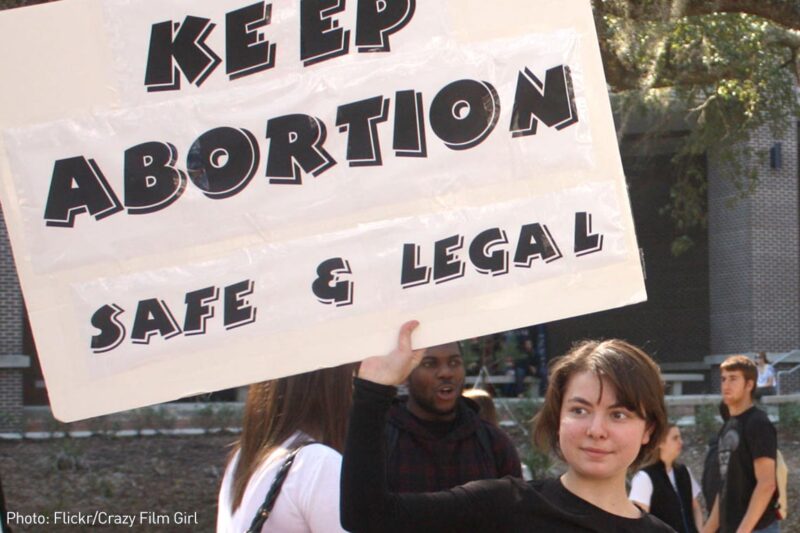
Forty-three years after Roe v. Wade legalized a woman‚Äôs right to abortion, the Supreme Court is again considering another abortion case ‚ÄĒ one that will have serious implications for what Roe actually guaranteed.
The case, Whole Woman’s Health v. Hellerstedt, is sure to be a watershed moment for abortion rights. The court will consider just how far states can go in blocking the path of a woman who has decided to have an abortion.
Ever since the Roe decision, anti-abortion activists have attempted to roll back women’s right to have an abortion. Over the past five years, they have been relentless.
Consider : In the five years starting in 2011, anti-abortion opponents passed as many restrictions on abortion as in the previous 15 years combined. In 2015 alone, to restrict abortion were introduced ‚ÄĒ 57 of those were enacted. Their attempts have come in all forms: the contrived, the contemptuous, and the conspicuously dishonest.
The Contrived
Many of the abortion restrictions were introduced under the guise of protecting women’s health. , or targeted regulation of abortion providers, require doctors to have admitting privileges or clinics to meet standards of surgical ambulatory centers.
While these requirements may sound reasonable on their face, of the American Congress of Obstetricians and Gynecologists that they don’t make women any safer. In fact, because these standards are often impossible for doctors and clinics to comply with, the that they put women at risk by shutting down clinics where they can get a safe and legal abortion.
For example, for a clinic to become an ambulatory surgical center it needs to be retrofitted as a mini-hospital. Compliance can cost millions of dollars. Since most clinics cannot afford the costs they are forced to shut down.
Likewise, requiring doctors who provide abortions to have admitting privileges at local hospitals results in closed clinics ‚ÄĒ not safer clinics. To get admitting privileges at hospitals, doctors often must admit a certain number of patients. But abortion is an incredibly safe procedure, experience a serious complication. At that rate, doctors who provide abortion won‚Äôt ever meet the hospital‚Äôs quotas.
The Contemptuous
Meanwhile, states have imposed mandatory delay periods. Even though a woman has already made a firm decision, these laws require her to postpone her abortion until she can make a second visit up to 72 hours before she can have an abortion. Women may have to travel several hours, pay for transportation, get childcare, and miss work, only to have to do it again several days later.
States have even banned certain abortion procedures. North Dakota has attempted to ban abortion after six weeks, when many women don’t even know that they are pregnant. Arizona enacted legislation mandating that doctors sign an affidavit that the race or sex of the fetus did not factor in a woman’s decision to have an abortion. Arkansas and Arizona passed laws requiring that doctors mislead their patients by telling them that medication abortion can be reversed (something for which there is no medical evidence).
This list of restrictions goes on.
The Conspicuously Dishonest
That these laws have passed in states around the country is no accident. Many of them come from playbooks written by groups like and National Right to Life, organizations with a mandate to end abortion. Politicians may invoke the mantle of protecting women’s health, but they have not hidden their true intentions.
After claiming that the Mississippi admitting privileges law was designed to protect women‚Äôs health, couldn‚Äôt have been any clearer in his State of the State address, ‚ÄúOn this unfortunate anniversary of Roe v. Wade, my goal is to end abortion in Mississippi.‚ÄĚ
, who claimed that Texas TRAP laws were intended to protect women‚Äôs health, addressed an anti-abortion rally, saying, ‚ÄúThe ideal world is one without abortion. Until then, we will continue to pass laws to ensure that they are as rare as possible.‚ÄĚ
Abortion restrictions cannot undo the rights protected in the Constitution outright. But they can make accessing an abortion so difficult as to render the Roe decision moot. If women cannot actually get an abortion, then the right does no service to her.
And indeed this is by design.

